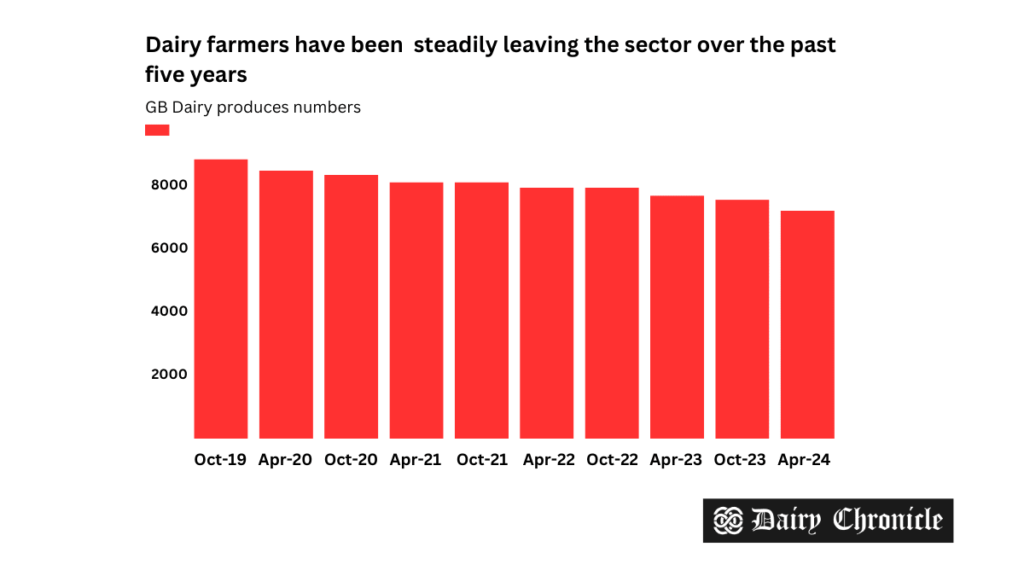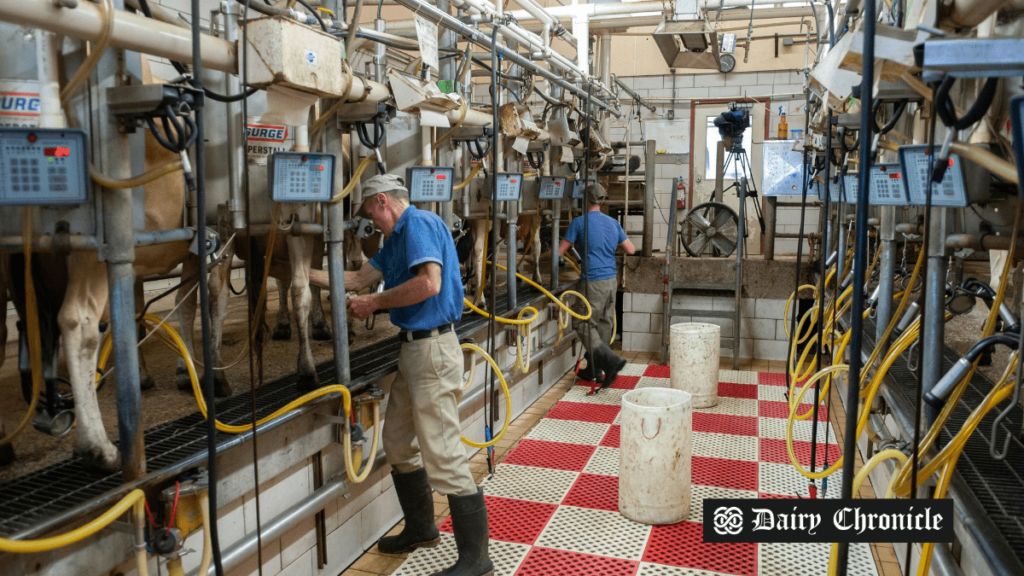Arla has raised concerns about the UK’s food security due to labour shortages and wage inflation, with one in twelve UK dairy farmers reducing production. The Brexit-induced end of free movement and the COVID-19 pandemic have worsened recruitment difficulties, prompting some farmers to consider leaving the industry. Arla is collaborating with the UK government to address the skills gap and secure the dairy sector’s future.
Denmark-based dairy cooperative Arla has raised concerns about the UK’s food security, citing labour shortages and wage inflation as significant challenges. Arla, the UK’s largest dairy supplier, revealed that the end of free movement following Brexit and the ongoing impact of the COVID-19 pandemic have forced many British farmers to cut production, with some even considering exiting the sector altogether.
According to a study conducted by Arla, one in twelve of the 472 UK dairy farmers surveyed have already reduced output due to difficulties in recruiting staff. The study, published on August 25, 2024, also showed that 16% of farmers might leave the dairy industry if conditions do not improve.

Bas Padberg, Arla’s UK managing director, emphasized the need for urgent support to ensure farmers can continue to contribute to the nation’s food supply.
“Our farmers have been telling us for some time that labour shortages are a critical issue. Without help, they won’t be able to continue putting food on millions of tables across the country.”
Bas Padberg, Arla’s UK managing director,
The survey found that farmers are paying nearly 30% more in wages compared to pre-pandemic levels, as competition for workers in the agricultural sector has intensified. The combination of Brexit-related labour restrictions and the pandemic has led to increased difficulty in finding and retaining workers, particularly for skilled positions in Arla’s increasingly automated factories, where it now takes up to six months to fill engineering roles.
Arla is working closely with the UK government, including the Department for Work and Pensions, to promote careers in the food and agriculture sectors through job centres and career advisory services. The company is also urging ministers to reform the apprenticeship levy, enabling businesses to invest in alternative training pathways to address the skills gap in the industry.
The number of dairy farmers in the UK has seen a steady decline over the past five years, with a particularly sharp drop of 5.8% between October 2023 and April 2024, according to data from the Agriculture and Horticulture Development Board (AHDB). However, milk production has only fallen by 0.5%, suggesting that remaining farms have absorbed cows from those exiting the industry.
Padberg highlighted the need for long-term investment in automation and skills development to ensure the sector’s sustainability. With continued wage inflation, labour shortages, and regulatory demands, Arla and the wider industry are calling for government action to safeguard the future of the UK’s dairy sector.



